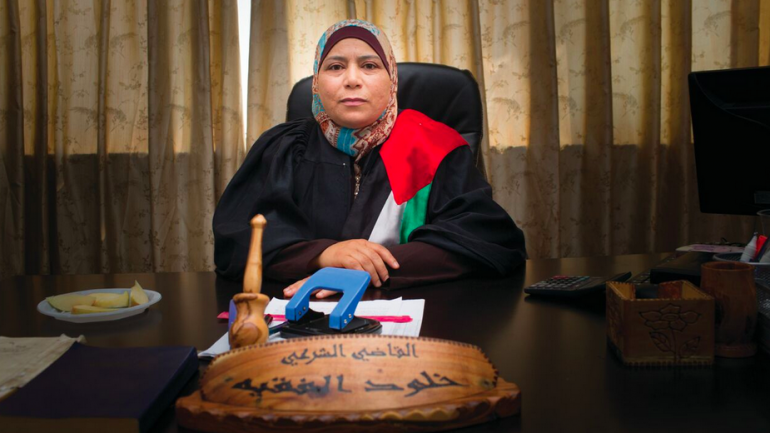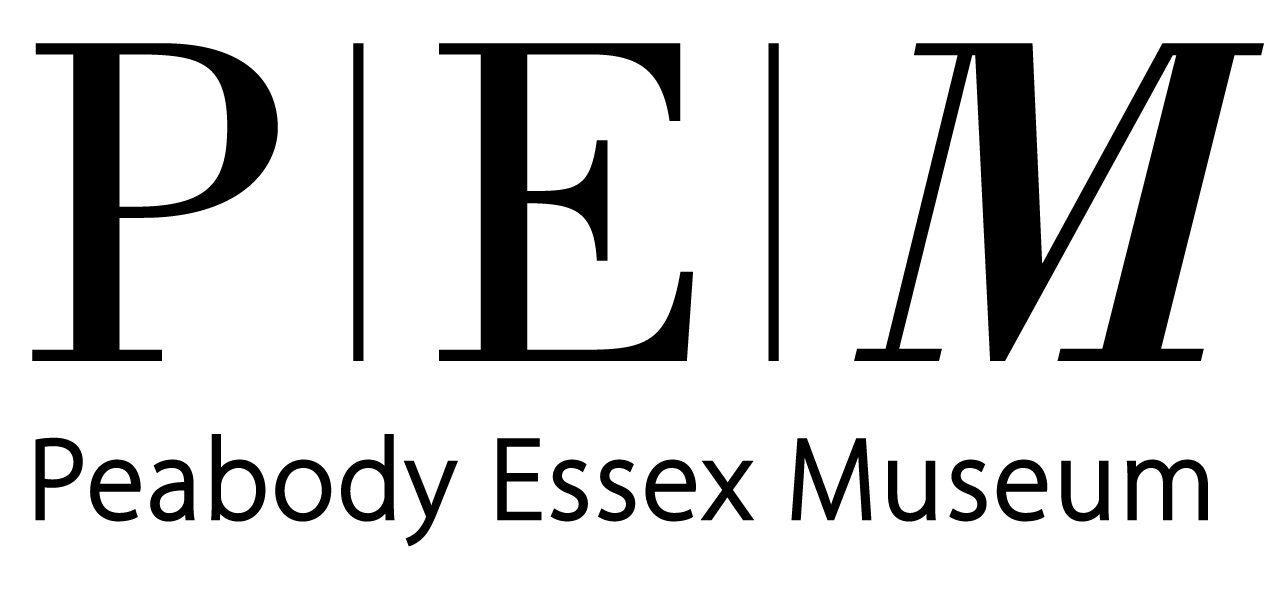
The religious Shari’a courts of Islam ban women from adjudicating domestic and family matters. Kholoud Al-Faqih, a criminal lawyer who has drawn the support of a progressive Sheik, challenges over 1,000 years of tradition with her appointment as the first woman judge to sit on a West Bank Palestinian Shari’a court. THE JUDGE follows Kholoud inside and outside the courtroom as she redefines how Shari’a law treats women despite attempts to marginalize and demote her.
SFF Selection Committee member Shelley Sackett caught up with Erika Cohn (SFF special screening IN FOOTBALL WE TRUST) ahead of the film's New England premiere on Sunday, March 25 at 4:50pm at the Peabody Essex Museum.
SS: How did you get into filmmaking?
EC: I grew up in Salt Lake City, UT and started attending the Sundance Film Festival at a young age, where I fell in love with independent film. I deeply felt the power of cinema and craved the feeling of being transported into different worlds/places/cultures for a couple of hours. I was 15 when I made my first film, mentored by a local youth media program in conjunction with the Sundance Institute. At the time, I was struggling with how to self-identify as a non-Mormon, coming from an interfaith family in a city where faith defines who a person is. Film became a catalyst for me to express my frustrations with socio-cultural-religious alienation and to heal intergenerational wounds. After this experience, I became committed to providing a platform for unheard voices to be heard and untold stories to be told.
It's a great privilege to be a storyteller, which comes with tremendous responsibility - which I do not take lightly, and I'm driven to using cinema to move audiences to a more just world.
SS:How did you get involved with this project?
EC: While I was on a shooting hiatus with my last film, IN FOOTBALL WE TRUST, I received a Rotary Ambassadorial Scholarship in Israel/Palestine. There I taught film, mentored local filmmakers, assisted NGOs launch media advocacy projects, and continued my post-graduate research in Islamic feminism at Hebrew University. One day, a dear friend and colleague invited me to attend a Shari’a law reform meeting in Ramallah.
I was welcomed into a large conference room filled with the images of Arafat throughout the years hanging in old picture frames, and seated at a table surrounded by men in tarbooshes (hats that judges and sheikhs wear). Then Judge Kholoud walked in and everyone stood to great her. I was immediately struck by her presence – her confidence – her command of the room. I wanted to know more. Who was this woman? What was her story?
Judge Kholoud and I were introduced at the end of the meeting and I was moved by her charisma and personal story. After spending her first years as an attorney representing women who were survivors of domestic violence, Kholoud felt she could best catalyze change in the Shari’a courts, where familial cases are adjudicated. She then turned to the Shari’a text to prove that women could be judges and began studying for the judicial exams. I remember asking her how she felt about the mistreatment of women under Shari’a…to which she responded, the problem isn’t with the Shari’a, it is with the interpretation (or rather misinterpretation).
Upon learning I was a filmmaker, Kholoud immediately expressed enthusiasm in making a film about her journey. She hoped that sharing her story would inspire other women and girls throughout the Muslim world to pursue leadership roles in their communities, despite cultural and/or traditional norms. Thus, THE JUDGE was born.
I immediately called mentor and Executive Producer, Geralyn Dreyfous to tell her about this encounter who encouraged me to pursue the project and was an invaluable producing partner throughout the journey.
SS:Why did you feel compelled to make this film? What about the story ignited a fire in your belly?
EC: I have always been fascinated with how law is interpreted – how power, economics and/or status can influence implementation. I am captivated by the intersection and tension between religion, culture and identity. I am drawn to narratives about strong women. Kholoud’s story stuck with me and I felt that her experiences might invoke a more nuanced understanding of Shari’a, challenge rapidly increasing global Islamophobia and highlight positive advancements for women by women in the Middle East, which are often uncovered or ignored by mainstream media.
SS:What have the reactions to the film by audiences?
EC: We screened the film at numerous film festivals around the world, where audiences have been fascinated with Kholoud's journey and inspired by her courage, in addition to being captivated by the verité courtroom scenes in an environment that most audiences viewers would never be privy too.
SS:What do you hope audiences take away from the film?
EC: Judge Kholoud’s resilience and determination greatly impacted our entire team and will encourage others around the world to persevere through adversity – in asserting legal rights, achieving gender justice and challenging cultural and traditional norms. I believe her story reflects a collective struggle for women’s control over their bodies, economic welfare, custodial rights, and marital status. I hope THE JUDGE leaves viewers with a greater insight into Shari’a law and strong imagery of powerful Muslim women, while illuminating some of the universal conflicts in the domestic life of Palestine.
SS: Has there been any reaction in Palestine?
EC: We hope to screen the film in Palestine soon.
SS: What is your next project?
EC: I'm currently in development with my first fiction feature and in production with feature-documentary, BELLY OF THE BEAST, which intimately chronicles the journey of women fighting reproductive injustice in their communities.
SS: Anything you'd like to add?
EC: After SFF, THE JUDGE will open theatrically in numerous cities across the U.S. including NYC, LA, San Francisco, Berkeley, Seattle, DC, Boston, Salt Lake City, Chicago and Detroit among others. Later this fall the film will be broadcast on PBS's "Independent Lens" series.

